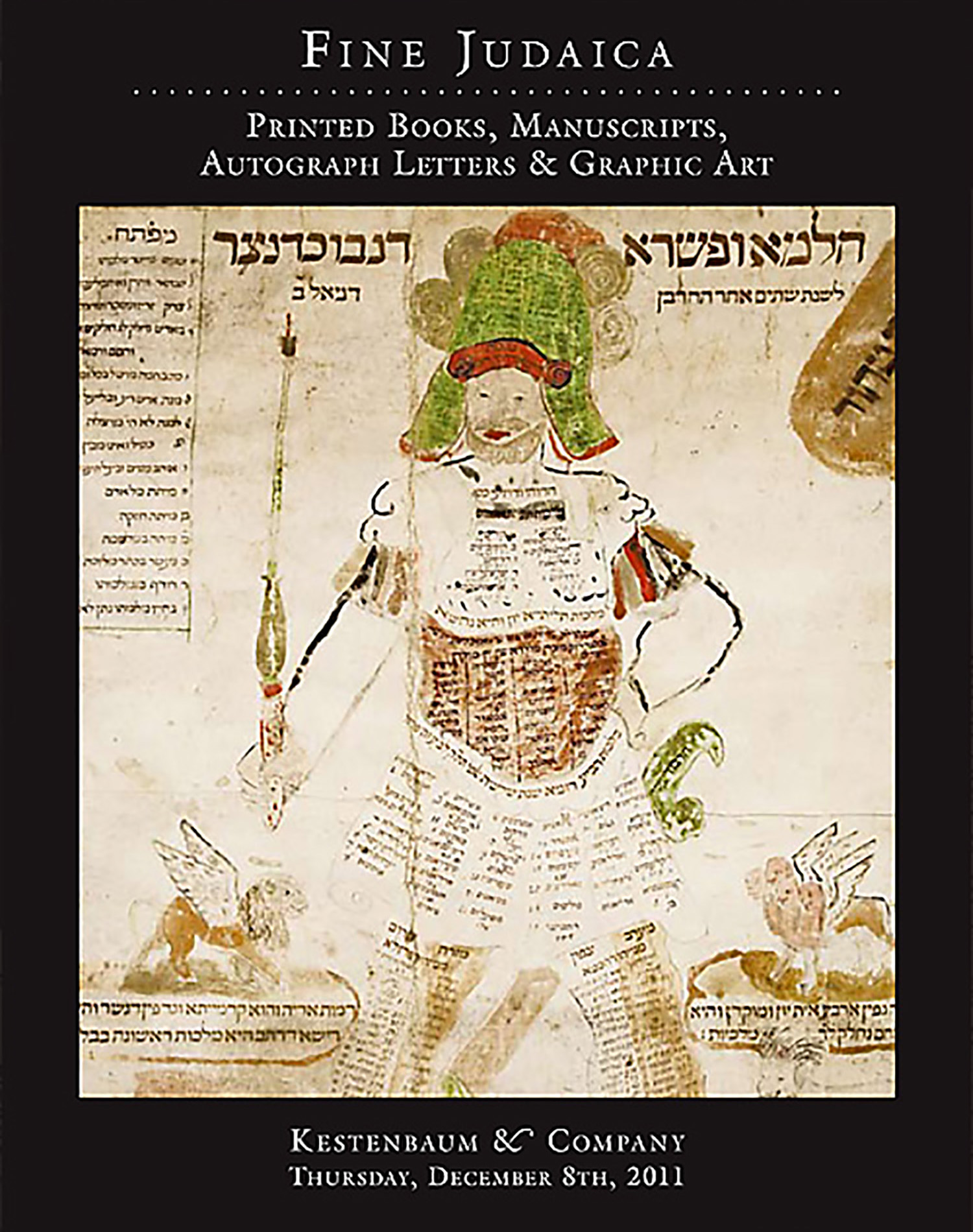(FRENCH JUDAICA)

AUCTION 53 |
Thursday, December 08th,
2011 at 1:00
Fine Judaica: Printed Books, Manuscripts Autograph Letters & Graphic Art
Lot 102
(FRENCH JUDAICA)
Paris: L.-P. Sétier Fils, for Consistoire Central des Israélites 1812
Est: $2,000 - $3,000
PRICE REALIZED $3,000
Convened by Napoleon in 1806, the Paris Sanhedrin formulated rulings concerning civil issues that faced the Jews who had recently become enfranchised citizens of a centralized modern democratic state.
The first enactment of this Sanhedrin or Great Assembly of seventy-one members, concerns the ban on polygamy. Article II stipulates that no rabbi in the Empire (consisting of France and Italy) may arrange a “get” or religious divorce until the marriage has been dissolved by the civil authority.
Article III likewise forbids any rabbi from marrying a couple until their marriage has been solemnized before the civil official. The wording of the last paragraph of that article, concerning intermarriage between Jews and non-Jews, represents a tightrope between the demands of the Halacha and those of the State (bent as it was on assimilating the Jews): “The Sanhedrin declares also that the marriages between Israelites and Christians, contracted in conformity to the laws of the Civil code, obligate in regard to civil affairs, and though it is impossible that they be recognized as marriage (kidushin tofsim) according to the Mosaic Code - no anathema (cherem) shall be imposed upon them.”
In Articles IV-V, the Israelites of the French Empire are enjoined to treat their fellow citizens as brothers, coming to their aid, visiting their sick, burying their dead, supporting their poor. Cannily the author was able to sneak in the proviso that these non-Jews be “observers of the seven Noahide commandments” (p. 39).
Article VI obligates Jews to serve in the French military and exempts them from any religious observances that might impede their military service. Article VII encourages Jews to learn useful professions, such as agriculture.
The final articles (Articles VIII-IX) of this fascinating document–which would impact on Franco-Jewish life for centuries to come–forbid the practice of usury (which was seen by French authorities as the major obstacle to the Jews’ entry into mainstream French society). Pages 68-72 provide a detailed roster of the members of the Sanhedrin, both rabbis and laymen.
See S. Schwarzfuchs, Napoleon, the Jews and the Sanhedrin ( 1979), pp. 88-114.
